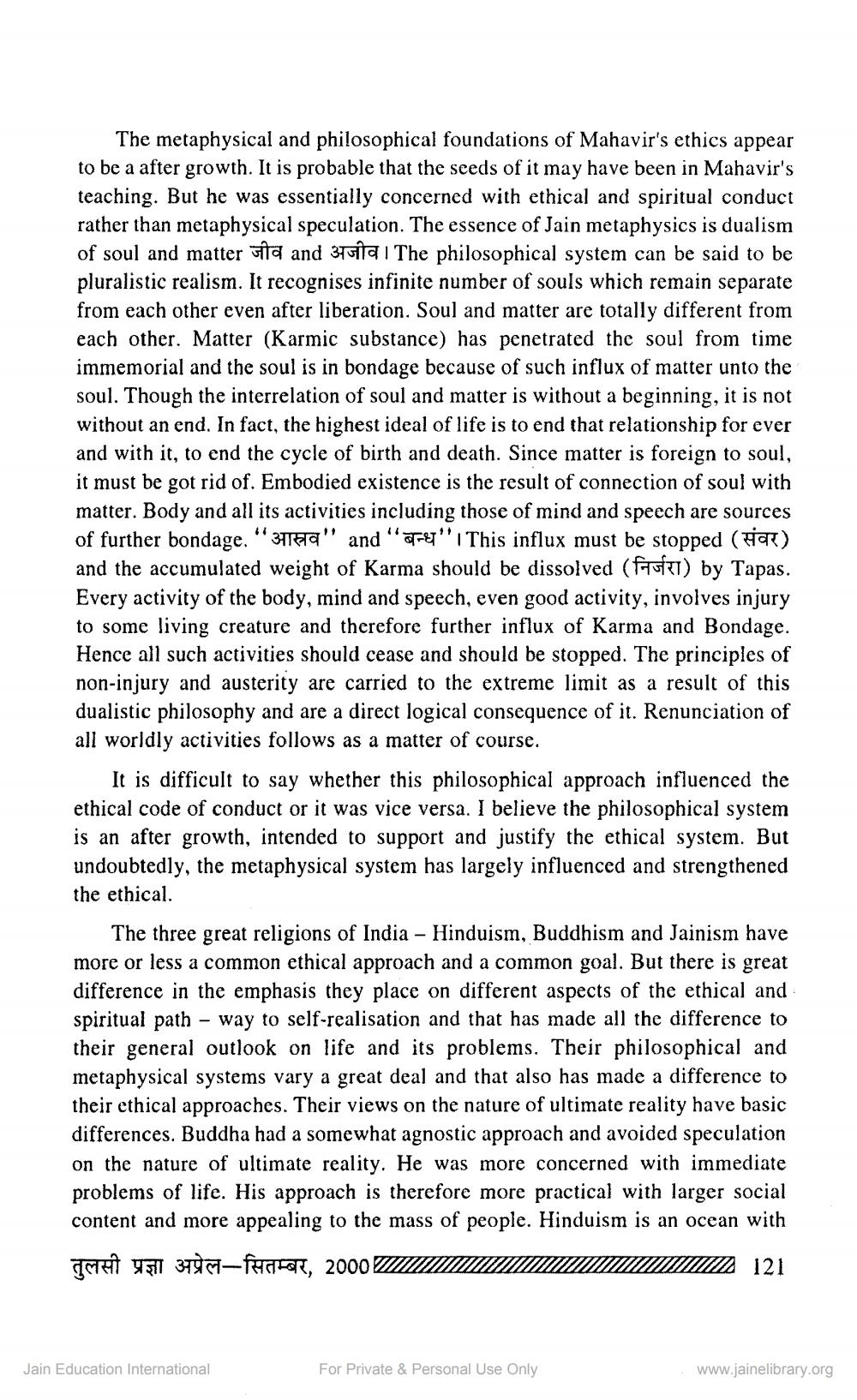________________
The metaphysical and philosophical foundations of Mahavir's ethics appear to be a after growth. It is probable that the seeds of it may have been in Mahavir's teaching. But he was essentially concerned with ethical and spiritual conduct rather than metaphysical speculation. The essence of Jain metaphysics is dualism of soul and matter and 3 The philosophical system can be said to be pluralistic realism. It recognises infinite number of souls which remain separate from each other even after liberation. Soul and matter are totally different from each other. Matter (Karmic substance) has penetrated the soul from time immemorial and the soul is in bondage because of such influx of matter unto the soul. Though the interrelation of soul and matter is without a beginning, it is not without an end. In fact, the highest ideal of life is to end that relationship for ever and with it, to end the cycle of birth and death. Since matter is foreign to soul, it must be got rid of. Embodied existence is the result of connection of soul with matter. Body and all its activities including those of mind and speech are sources of further bondage. "आस्रव' and ‘“बन्ध'' । This influx must be stopped ( संवर) and the accumulated weight of Karma should be dissolved (f) by Tapas. Every activity of the body, mind and speech, even good activity, involves injury to some living creature and therefore further influx of Karma and Bondage. Hence all such activities should cease and should be stopped. The principles of non-injury and austerity are carried to the extreme limit as a result of this dualistic philosophy and are a direct logical consequence of it. Renunciation of all worldly activities follows as a matter of course.
11
It is difficult to say whether this philosophical approach influenced the ethical code of conduct or it was vice versa. I believe the philosophical system is an after growth, intended to support and justify the ethical system. But undoubtedly, the metaphysical system has largely influenced and strengthened the ethical.
The three great religions of India - Hinduism, Buddhism and Jainism have more or less a common ethical approach and a common goal. But there is great difference in the emphasis they place on different aspects of the ethical and spiritual pathway to self-realisation and that has made all the difference to their general outlook on life and its problems. Their philosophical and metaphysical systems vary a great deal and that also has made a difference to their ethical approaches. Their views on the nature of ultimate reality have basic differences. Buddha had a somewhat agnostic approach and avoided speculation on the nature of ultimate reality. He was more concerned with immediate problems of life. His approach is therefore more practical with larger social content and more appealing to the mass of people. Hinduism is an ocean with
तुलसी प्रज्ञा अप्रेल - सितम्बर, 2000000
mmmmmmm 121
Jain Education International
For Private & Personal Use Only
www.jainelibrary.org




